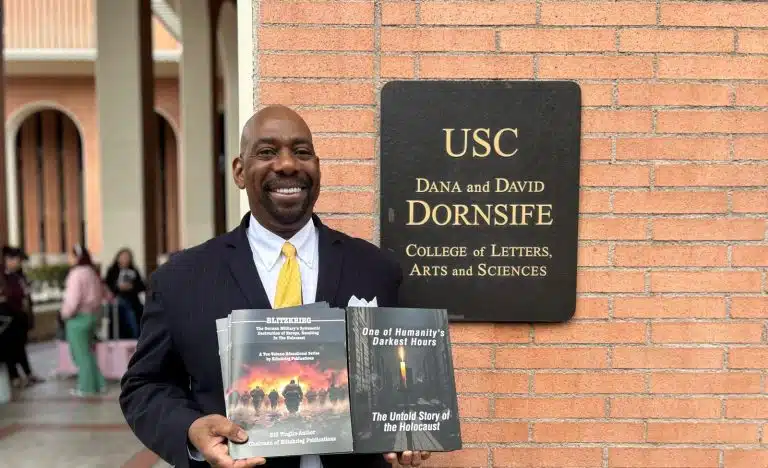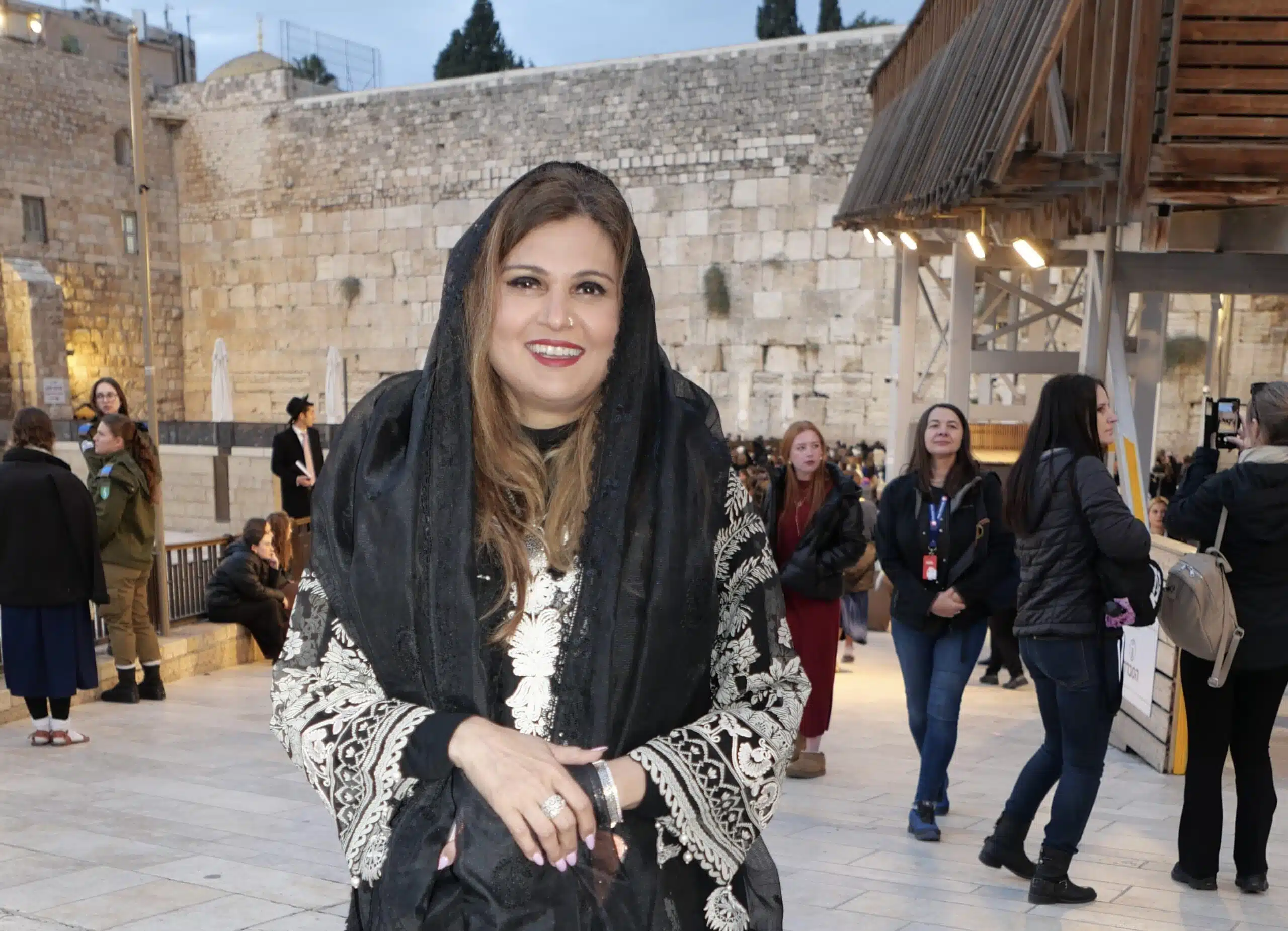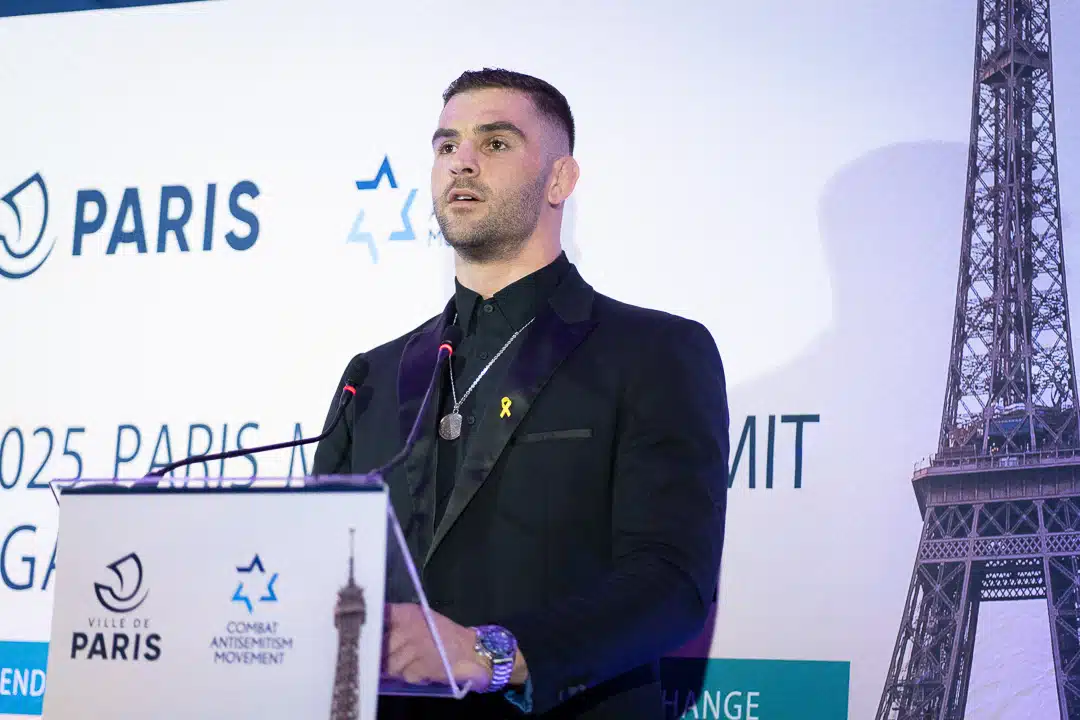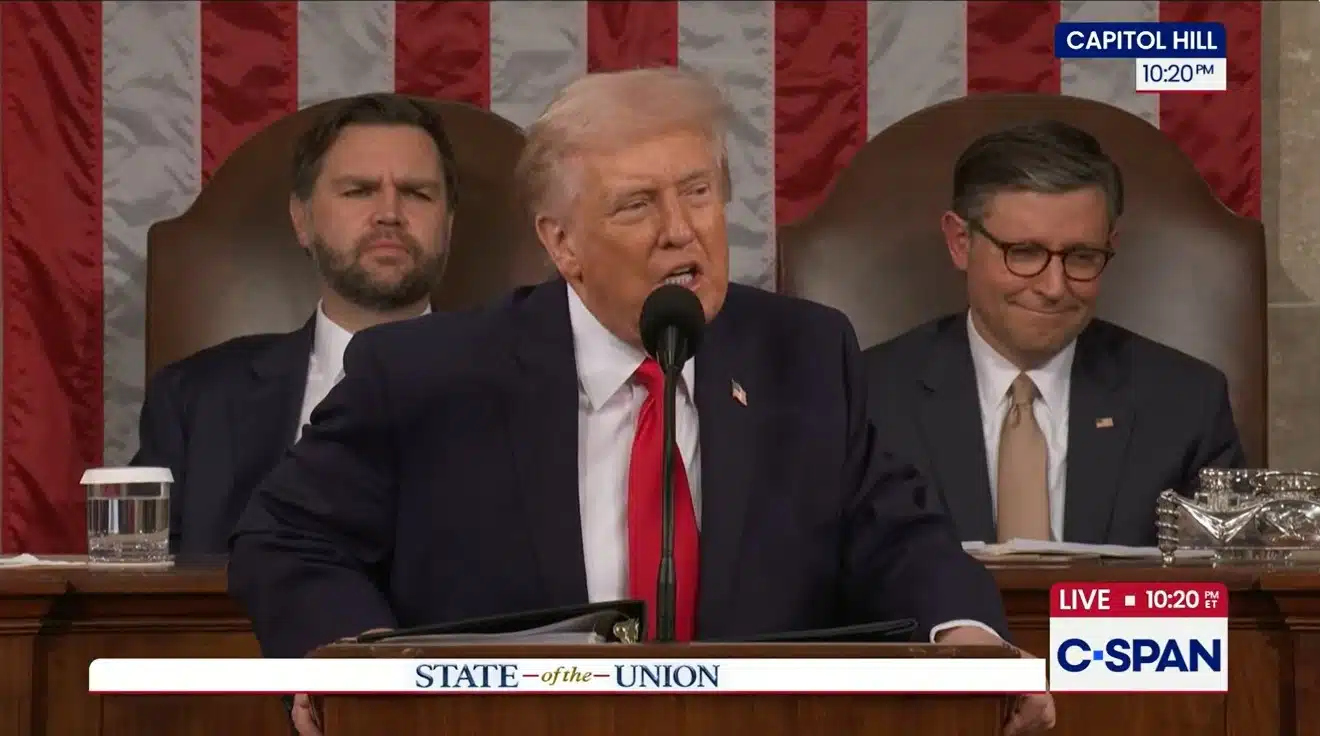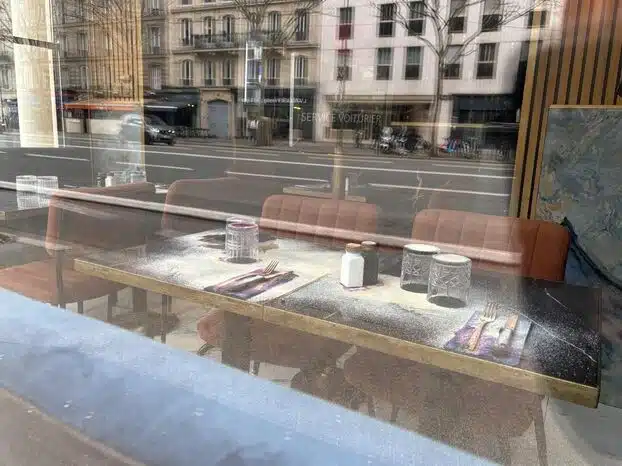|
Getting your Trinity Audio player ready...
|
New police data published last month revealed that antisemitic hate crimes rose 71% in Canada in 2023, with Jews becoming the most targeted minority group in the country.
One prominent Canadian voice raising the alarm over this concerning trend is Member of Parliament Melissa Lantsman, who serves as co-deputy leader of the opposition Conservative Party.
Lantsman, 40, is Jewish herself and represents Canada’s largest Jewish constituency, the Thornhill district near Toronto.
This week, Lantsman spoke with Combat Antisemitism Movement (CAM) Editor-in-Chief Barney Breen-Portnoy about the situation facing Canadian Jewry amid the continuing repercussions of the October 7th massacre in Israel and the global surge of antisemitism it set off.
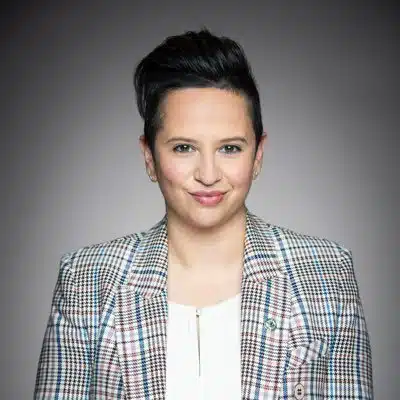
What is your reaction to the latest Canadian antisemitism statistics and what do you think must be done about it?
“I think the trend in Canada is particularly alarming, and I think the response is particularly weak from our federal government, from leaders in government, and, frankly, from almost every government across the country at all levels. It’s been difficult for Jews to watch the chaos that’s ensued on our streets. We’ve had gunshots into schools, firebombings of businesses, consistent vandalism in Jewish communities, both large and small, around the country. It’s driven a fear that I’ve never seen before, but it’s also driven a resolve in the Jewish community, which is sort of a silver lining in all of this.”
“The government could start by doing anything to address this. I think there is a widespread agreement that there is a complete failure of leadership from the top — not only to recognize and denounce it, which would be the most simple thing to do, but also to really take concrete action, or any action whatsoever.”
What has the Canadian Jewish community experienced in the aftermath of October 7th?
“In the first couple of days, I think everybody was on the same page. We had a large rally here in Toronto, which is home to the largest Jewish population in the country, and everybody from the federal government to the provincial governments to the municipal governments were on the same page in terms of recognizing the horror of October 7th.”
“However, it didn’t take very long for that consensus to change. For the last ten months, there has been an abdication of leadership. Day after day, you can open your newspaper here, or open your social media if you’re doom-scrolling, to see antisemitic incident after antisemitic incident. There’s a lot that the federal government can do that it has not done. Even just the beginnings of it would be to denounce it, or to recognize it, but instead we’ve seen silence.”

What types of government action can be taken at the national level to effectively counter rising antisemitism?
“I think leadership starts from the top. There needs to be a complete denunciation of this as un-Canadian. We used to see this on Twitter — an antisemitic attack would happen, and you’d have your typical politician from the governing party say, ‘This is not acceptable. This is not who we are.’ But now, unfortunately, it has become acceptable, it is exactly what Canada has become.”
“And instead of banning terror groups that operate freely in our country, the federal government hasn’t moved on that. They recently moved on one thing that we’ve been calling on for six years, and that’s blacklisting the IRGC [Iran’s Islamic Revolutionary Guard Corps], but we haven’t seen any follow-up action.”
“We know that those who participated in the horrific massacre of October 7th, the largest one against Jews since the Holocaust, were UNRWA [United Nations Relief and Works Agency for Palestine Refugees in the Near East] employees, yet this government has reinstated funding for UNRWA, meaning that our tax dollars are going to fund terror.”
“We can establish a foreign agent registry to know exactly who is entering our country and what they are doing on behalf of other states, particularly hostile states.”
“We can evaluate Canada’s threat assessment system, so we can stop attacks before they happen. We saw this recently in the UK.”
“We can do things like kill the red tape in the security infrastructure program we have here to protect institutions. If you can’t go to your synagogue or your school, or any community center, without fear, they should be able to have access to the funding and an easy way to get that funding to secure their buildings.”
“And even little things, like a security task force, where all levels of government and all police forces actually work together, would be a confidence-building measure for the public, showing that this is being taking this seriously. But instead, we’ve seen none of that. Unfortunately, that’s where we are at in Canada right now.”
What is the status of the International Holocaust Remembrance Alliance (IHRA) Working Definition of Antisemitism in Canada?
“The government recognizes the definition, it’s our institutions that haven’t moved on it. I think this government though has abdicated its political responsibility on this by appointing things like envoys or special members of parliament who go into communities and say all the right things while other members of parliament in that very governing party go to other groups and say the exact opposite.”
“We’ve had weak leadership at the university level, where they can’t clear their own front yards from encampments, similar to the ones you saw in the U.S. We’ve had university presidents, particularly of our largest university in our largest city, saying the IHRA definition is an attack on academia.”
“I think much of this stems from a perversion of our commitment to DEI, or EDI, or however you want to call it, that doesn’t recognize antisemitism. In fact, it inverts it in such a perverted way that it allows it to flourish in our institutions — not just universities, but also unions, school boards, and government anti-racism training programs.”
How has antisemitism impacted your own life and political career?
“It impacts me the same way it would impact any Canadian. This is not just a fight for the Jewish community, although I happen to represent the largest one in the country, and obviously you advocate for those in your own constituency. But this is a much bigger problem. It is a fundamental attack on Western values and the values we hold dear in Canada. Human rights, the rule of law, all of these things have been thrown out the window by allowing what is happening on our streets to flourish.”
“Me personally, I’m going to stand on the right side of history. I know that my boss, [Conservative Party Leader] Pierre Poilievre, who I hope is going to be the next prime minister of Canada, sees this issue as black and white, and it is something that must be fixed before it gets to point where Jews no longer have a place in Canada.”
What roadblocks have you and others faced in efforts to fight antisemitism in Canada? And what can concerned citizens and NGOS do to aid these efforts?
“We’ve had an incredible uprising of the grassroots in our community, and that’s the silver lining that I spoke about. People who always saw this country as a safe place to live, where antisemitism wasn’t allowed to flourish in our institutions, have taken on the fight.”
“When the government lets people down, when our traditional organizations probably haven’t fulfilled their mandate, then people stand up, and it’s incredibly powerful to see — people rallying every single week at the same corners, students coming to parliament to tell their stories. I think more and more Canadians are realizing this is not just a fight for the Jewish community, it is a fight for who we are as a country.”

Are you hopeful that the battle against antisemitism in Canada is one that can be won? What do you think the prospects are for the future of Canadian Jewry?
“Of course, if I didn’t believe this was fight worth having, then I think myself and many others would just do something else. But this is a country that is worth saving from the ugly scourge of antisemitism. And when we have a leader who can bring this country together, rather than drive it apart, I think we’ll be able to fight the scourge of antisemitism, stop what is going taking place on our streets, and overturn what has taken over our institutions, like our schools and universities. I absolutely thing it’s fixable, and there are so many Canadians with the resolve to fix it.”


